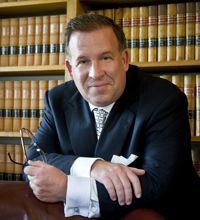By: David M. Frees III, Esquire Trust, Estate, and Weallth Preservation
Generally speaking, the longer a trust or estate stays open, the greater the likelihood of problems. Of course, the estate or trust administration must last long enough to make sure that the bills are paid, the tax returns are filesd and claered by the government, and for certain administrative tasks to be performed. But, many estates remain open for much longer than necessary. And, as a result, costs and expenses rise. So how do you build a plan that saves on time and money and limits the liability exposure of your heirs?
1) Make sure that your beneficiary designations match the beneficiaries of your will or trust. If they do not, then make sure that you explain why and clarify who is supposed to get what. This is a common area of confusion and dispute. Furthermore, make sure that you are clear on whether joint accounts are really intended to go to the joint account holder on your death or wether the account is simply joint for purposes of convenience.
2) Make sure to review and discuss the tax clauses of your will and/or trust with your lawyer. If one heir is getting a major asset such as a piece of real estate, then who pays the tax on that? Is the tax paid by the estate or the heir? Conflicts between heirs regarding taxation can be very costly. And, if it is not clear and the esecutor or trustee has to seek court approval that can take time and adds expense.
3) Make sure to consider an Interrorum Clause, also known as a "no contest clause." These clauses state that if you are an heir under a will or trust, and you challenge the document, then your inheritance is eliminated. This is a significant deterrent to expensive challenges and disputes. Also find out if the law of your state permits you to go even further and to eliminate a gift if an heir challenges non probate transfers such as trusts.
4) Be extra cautious about IRA, 401(k) and retirement plans. Whenever possible, these plans should go directly to younger heirs capable of managing them and making good decisions. This should ensure the ability of the heirs to take required minimum distributions based on his or her life expectancy. In this way, you can delay the payment of inheritance taxes and they transfer automatically and without probate. On the other hand, if they are payable to an estate (and many trusts) then all of the taxes are due right away and probate fees are also due and payable.
For more ways to get your estate lawyer to recognize that time is money check out part two coming soon.

David M. Frees III Wills, Trusts, Estates
Phoenixville, Malvern and West Chester Offices
Serving Chester County, Montgomery County, Philadelphia County
610-933-8069

